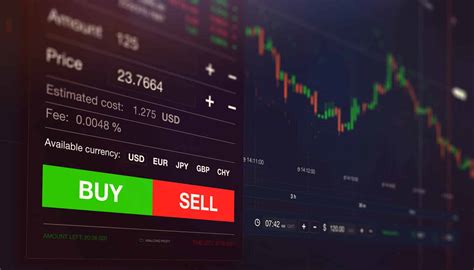
Stocks or Forex Trading: Which Path Suits Your Investment Goals?

Greetings, readers! As you embark on your investment journey, you face a fundamental choice: stocks or forex trading? Each avenue offers unique opportunities and challenges, and the key is to align your selection with your financial aspirations and risk tolerance.
Stocks: A Path to Company Ownership
When you buy stocks, you essentially become a part-owner of the underlying company. As the company’s fortunes rise, so too can the value of your investment. Stocks provide the potential for significant long-term returns, but they also carry inherent risk. Market fluctuations, economic downturns, and company-specific events can impact stock prices, leading to losses if you sell at an inopportune time.
Forex: The Currency Market’s Playground
Forex trading, short for foreign exchange, involves the buying and selling of currency pairs. Unlike stocks, forex offers leverage, enabling traders to amplify their potential returns. However, this comes with increased risk as losses can also be amplified. Currency markets are influenced by a myriad of factors, including geopolitical events, economic data, and central bank actions, and it requires a keen understanding of these dynamics to navigate successfully.
Considerations for Choosing Your Path
1. Risk Tolerance:
Stocks can offer higher returns over time, but they come with higher volatility. Forex trading, while potentially lucrative, carries even greater risk due to leverage. Choose an avenue that aligns with your ability to withstand potential losses.
2. Time Horizon:
Stocks typically require a longer investment horizon to achieve substantial returns. Forex trading, on the other hand, can provide short-term gains but also carries the risk of rapid losses. Consider your investment goals and the timeframe you have in mind.
3. Research and Education:
Both stocks and forex trading require a significant amount of research and education. Understand the markets, trading strategies, and risk management before venturing into either realm. Seek advice from experienced professionals if necessary.
Table: Key Differences between Stocks and Forex Trading
| Feature | Stocks | Forex |
|---|---|---|
| Underlying Asset | Shares of a company | Currency pairs |
| Ownership | Part-owner of the company | No ownership |
| Returns | Long-term growth potential | Short-term profit potential |
| Volatility | High | Higher |
| Risk Tolerance | Moderate to high | High |
| Leverage | Unavailable | Typically available |
Conclusion
The choice between stocks or forex trading is a personal one, dictated by your individual circumstances and goals. For those seeking long-term growth and willing to take on moderate risk, stocks may be a suitable choice. If you’re looking for the potential for short-term gains and are prepared to manage higher risk, forex trading might be an option worth considering.
As you proceed on your investment journey, remember to diversify your portfolio and invest based on your research and risk tolerance. The stock market and forex market offer a plethora of opportunities, but it’s crucial to approach them with knowledge, caution, and a clear understanding of your financial goals.
Check out our other articles for more insights on investing, trading, and personal finance.
FAQ about Stocks or Forex Trading
What is the difference between stocks and forex?
- Stocks represent ownership in a company, while forex (foreign exchange) is the trading of currencies.
Which is better for beginners?
- Either can be suitable for beginners, but forex may be more accessible due to lower trading costs and smaller lot sizes.
How much money do I need to start?
- The minimum capital needed varies depending on the broker and instrument traded. It could range from a few hundred to several thousand USD.
Can I make a quick profit?
- Quick profits are possible but risky. Trading involves potential losses, so it’s important to approach it with a long-term perspective.
What is a broker?
- A broker is an intermediary that provides access to financial markets and executes trades for clients.
What is leverage?
- Leverage allows traders to multiply their position size with borrowed funds, potentially increasing profits but also magnifying losses.
What is a stop-loss order?
- A stop-loss order automatically closes a losing position to limit risk.
How can I learn more?
- There are numerous online resources, books, and courses that provide education on stocks and forex trading.
Are there any risks involved?
- Yes, trading involves the risk of losing capital, both in stocks and forex.
What is a spread?
- A spread is the difference between the bid and ask prices of an asset. It is a component of the trading costs.

